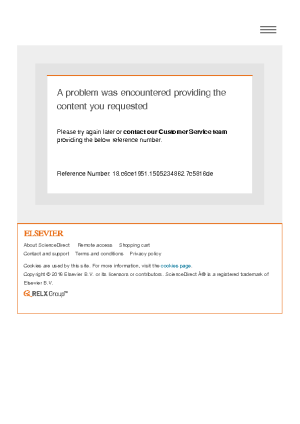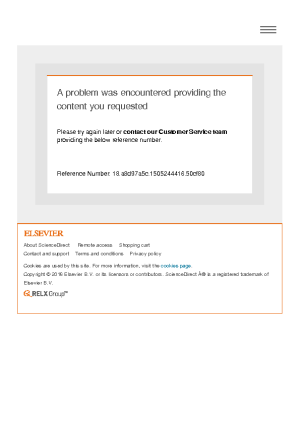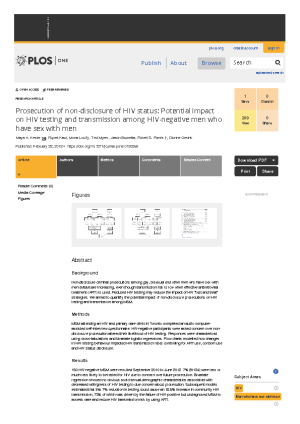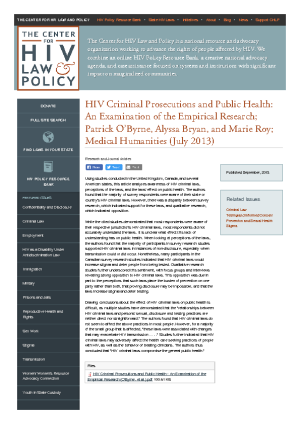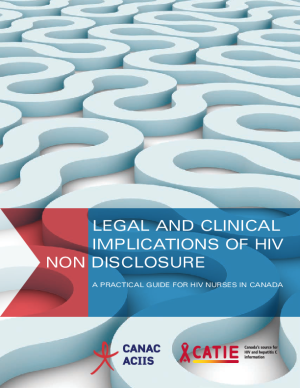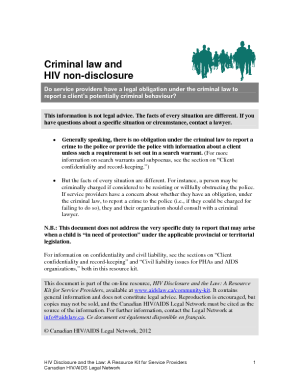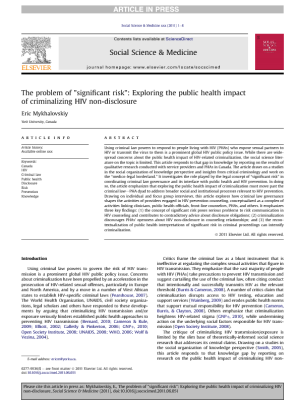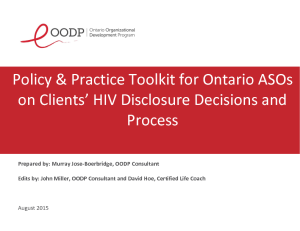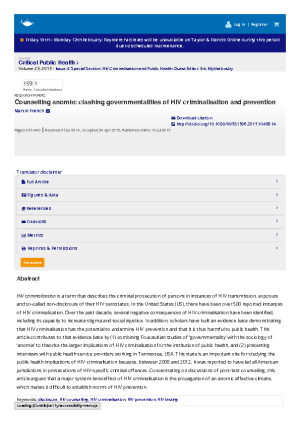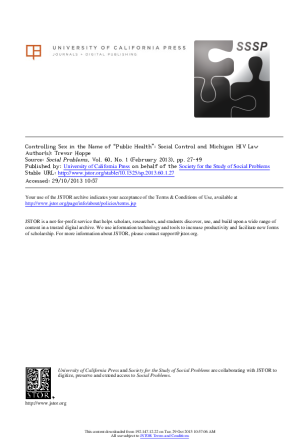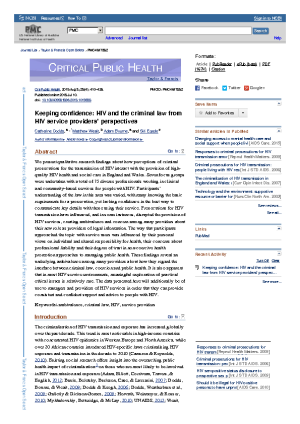Identifies knowledge gaps among Canadian and U.S. nurses related to several aspects of HIV-related criminal laws influencing nursing clinical practices. Argues nurses should increase their knowledge of HIV-related criminal laws to ensure the success of population health initiatives and to reduce stigma and discrimination experienced by people living with HIV.
Makes prevention & healthcare more difficult
Healthcare providers deliver fundamental healthcare and support but they are also the frontline in HIV prevention. While HIV diagnosis is focussed on the health and welfare of individual patients, diagnosis also plays a crucial role reducing HIV transmission by ensuring people do not unknowingly place their sexual partners at risk. Health care providers are charged with educating people about safe sex practice and providing support to ensure safe sex practice on an ongoing basis. Criminalisation undermines healthcare providers’ capacity to do their job.
Awareness and understanding of HIV non-disclosure case law among people living with HIV who use illicit drugs in a Canadian setting
Findings from a survey of people with HIV who use illicit drugs found that most were not aware of the 2012 Supreme Court ruling, which may place them at risk of prosecution. Discussions about disclosure and the law were lacking in healthcare settings.
Prosecution of non-disclosure of HIV status: Potential impact on HIV testing and transmission among HIV-negative men who have sex with men
Aims to quantify the potential impact of non-disclosure prosecutions on HIV testing and transmission among MSM. Found that fear of prosecution over HIV non-disclosure was reported to reduce HIV testing willingness by a minority of HIV-negative MSM in Toronto; however, this reduction had the potential to significantly increase HIV transmission at the community level which has important public health implications.
HIV criminal prosecutions and public health: an examination of the empirical research
Concludes that HIV-related criminal laws either fail to influence or increase STI testing avoidance, unprotected anonymous sexual contacts, and avoidance of health care because respondents do not feel safe speaking with health professionals. Suggests HIV-related criminal laws compromise public health and clinicians’ abilities to establish therapeutic relationships and to undertake HIV prevention and treatment work.
Examining public health nurses’ documentary practices: the impact of criminalizing HIV non-disclosure on inscription styles
Found that public health nurses’ anticipation that medical and public health records could be used as evidence in court is affecting public health nurses’ reasoning and documentary practices during HIV post-test counselling. Nurses have real concerns that notes will be misinterpreted and given a legal significance contrary to their original purpose, and fear their professional competence could be attacked. Traditional counselling practices prioritising client care and risk reduction are in conflict with HIV criminalisation.
Discussing the Limits of Confidentiality: The Impact of Criminalizing HIV Nondisclosure on Public Health Nurses’ Counselling
Found HIV criminalisation negatively impacts nursing practice as public health nurses endeavour to control information about the limits of confidentiality at the outset of HIV post-test counselling. Individual practice varies as nurses pragmatically balance ethical and professional concerns. Some intentionally withhold information about the risk of subpoena, while others talk to clients about confidentiality in ways that focus on the risk of harm associated with criminalisation.
Legal and clinical implications of HIV non-disclosure: A practical guide for HIV nurses in Canada
Provides guidance on the complexities many nurses face working with people living with HIV including how to document advice on disclosure and responding to a search warrant.
Do service providers have a legal obligation under the criminal law to report a client’s potentially criminal behaviour?
Explains that generally there is no obligation to report a crime to the police or provide the police with information about a client unless such a requirement is set out in a search warrant.
Special issue on the ramifications of the current context of criminal prosecutions for non-disclosure of HIV status on nursing practice
Summarizes a full-day meeting of health providers to address nondisclosure prosecutions and nursing practice. Issues included criminal law and serostatus disclosure, public health legislation surrounding HIV care and management, civil liabilities related to HIV-related care, and professional regulations and standards that influence nursing practice. Report includes recommendations.
The problem of ‘significant risk’: Exploring the public health impact of criminalizing HIV non-disclosure
Emphasizes that the concept of significant risk undermines communication about transmission risk during HIV counselling and contributes to contradictory advice about disclosure obligations. Criminalization discourages openness about HIV non-disclosure in counselling relationships. The recontextualization of public health interpretations of significant risk in criminal proceedings can intensify criminalization.
Policy & Practice Toolkit for Ontario AIDS Service Organizations on Clients’ HIV Disclosure Decisions and Process
Aims to support community-based HIV organizations to develop policies and practices that help people living with HIV to control and navigate HIV disclosure decisions and actions.
Counselling anomie: Clashing governmentalities of HIV criminalisation and prevention
Found that HIV criminalisation is rendering disclosure counselling difficult and potentially compromising trust between healthcare workers and patients. Counsellors’ understanding of the up-to-date science of HIV transmission risk also conflicts with the need to inform clients to disclose before any kind of sex to avoid prosecution – even when condoms are used or they have a low viral load. The study concludes that it is not only difficult for counsellors to determine when to discuss legal obligations during the counselling process, but exactly how to discuss them without undermining therapeutic relationships.
Controlling Sex in the Name of “Public Health”: Social Control and Michigan HIV Law
Found that local health officials’ interpretation of ‘health threat’ and understanding of the law varied. Indicates how public health institutions themselves may contribute to and facilitate enforcement of Michigan’s problematic HIV disclosure law. Shows that stigma and fear often drive community members to police HIV-positive neighbours’ disclosure practices.
HIV Criminalization: A Physician’s Perspective
US physician, Dr Wendy Armstrong’s, first person account of the prosecution of one of her patients is a rare published work about HIV criminalization by a practicing HIV medical practitioner. The article walks the reader through Dr Armstrong’s experience as she is forced to testify against a patient in HIV criminalization proceedings.
Keeping Confidence: HIV and the criminal law from service provider perspectives
Based on discussions with 75 service providers, this study found that criminalisation has influenced, and sometimes disrupted provision of HIV services, creating ambivalence and concern among many providers about their new role as providers of legal information. Service providers’ approach were influenced by their personal views on shared responsibility for health, concerns about professional liability and their degree of trust in non-coercive approaches to managing public health.
